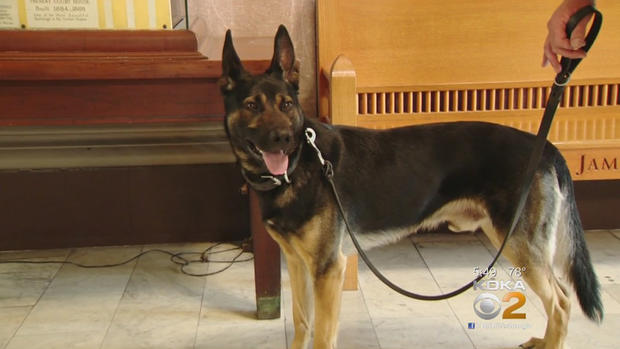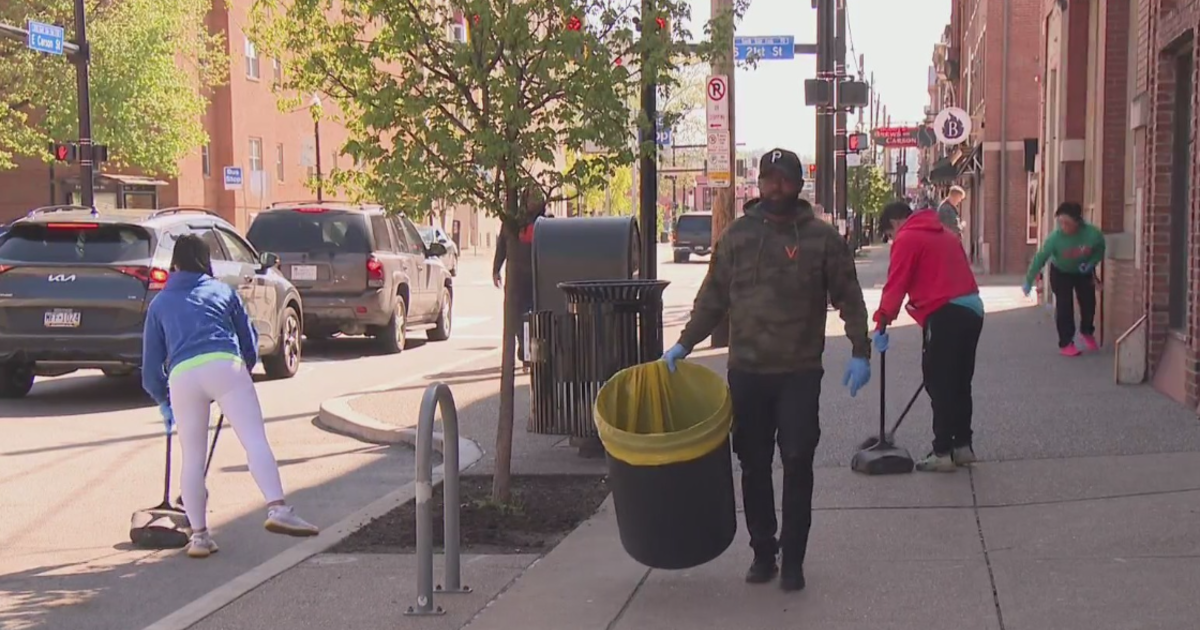As Invaluable As Police K-9s Prove To Be, Departments Struggle To Fund Programs Without State Funding
Follow KDKA-TV: Facebook | Twitter
PITTSBURGH (KDKA) -- Police K-9s are able to do what even the most capable police officer cannot do. Their noses can detect explosives, guns, drugs and people. They go into harm's way to keep us safe. Did you know our state government does not give police departments any money for them?
K-9 Gerix is one of the K-9s who helps keep the people of Pittsburgh safe.
"If we are searching a house that's a burglary in progress. I'll know within 30 seconds if there is somebody in that house just because of his body language, how he's smelling the air. He knows they're in there and he's just going to follow that odor to where they're at," said Pittsburgh Police Officer Casey Lockard.
Every K-9 has a specialty, either detecting bombs or detecting drugs.
"The dog's job is to go into harm's way for us," said Sgt. Sean Duffy, of the Pittsburgh Bureau of Police.
They are also trained to patrol, track and apprehend.
"Vicious? No. They do what they're trained to do," said Sgt. Duffy, who supervises the city's 20 K-9 teams. "I think they're very crucial, especially the bomb dogs."
When they are not working, they are like any other dog. K-9 Gerix, K-9 Junior and Allegheny County K-9 Woody proved to KDKA just how accurate they are, finding hidden explosives and narcotics within seconds of being tested.
K-9 Woody's job involves sweeping the county buildings, making sure people are safe from any bombs or explosives. He walks the hallways, the stairs, and the outside of the buildings. K-9 Woody is spot-on when he's tested.
"To try to keep us safe in this age of terrorism, they're an invaluable asset," said Sgt. Duffy.
As invaluable as K-9s may prove to be, many departments financially struggle to have them. The Allegheny County District Attorney's Office helps purchase and support K-9s with money seized from crimes.
"I think it brings the officers closer to the community that they serve. None of these dogs are trained to go out and hurt somebody. They're a deterrent," said Stephen Zappala Jr., District Attorney of Allegheny County.
Pittsburgh Police K-9s are regularly supported through city money and federal money for some of the bomb dogs. Yet, they still need to have fundraisers because K9 expenses are very costly. Donations are collected in memory of K-9 Rocco who saved three officers lives when he was stabbed. Not having a K-9 puts other officers at risk. Puts the public at risk, too.
In smaller boroughs, like Elizabeth, funding is much harder to come by. Sgt. Garrett Kimmel and his K-9 Ryker are forced to rely 100 percent on the generosity of the community.
"Our borough can't fund the K-9 unit, so when it stops being self-funded, it's probably going to go away," said Sgt. Kimmel.
Since there is no money coming from the state, the department must resort to fundraising.
"It would make life easier as far as fundraising goes and there wouldn't be such a need for the fundraising if it was matched by the state," said Sgt. Kimmel.
At the same time, K-9 Ryker continues proving his worth. His alerts helped dismantle what the U.S. Attorney said was one of the largest cocaine distribution rings our region has ever seen.
KDKA's Julie Grant requested a meeting with Pennsylvania State Rep. Dom Costa to ask if he would consider leading lawmakers to intervene.
"I think anything that we can do at the state level to reinforce and support our K-9 units and people who want a K-9 unit, we should do that. And I am so deeply appreciative of you to bring this to our attention," said Rep. Costa.
Rep. Costa has arranged for a policy hearing where K-9 officers can tell lawmakers about their funding struggles. That hearing will be held on May 8, 2018 at 2 p.m. at the City's K-9 training center on Washington Boulevard.




